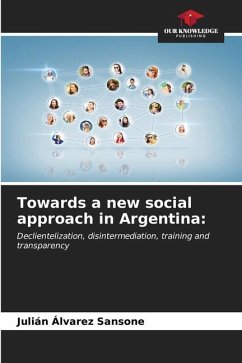This book aims to analyze and describe the changes and continuities undergone by a social policy during the Cambiemos administration (2015-2019). In particular, the analysis of the design of Hacemos Futuro proposed in this research helps to fill part of a knowledge gap that exists around a more detailed analysis of the design of this public policy (without focusing too much on its implementation like other works), and also seeks to address a topic that has been less worked on in other research: the issue of clientelism and how the design of Hacemos Futuro tries, on the one hand, to sort out the irregularities of thousands of cooperatives that operated with anomalies under Argentina Trabaja and, on the other hand, seeks to generate disintermediation between social movements and the beneficiaries of the programs in order to break possible and budgeted clientelistic networks that occur in these within the framework of social policies. In addition, this book explores in greater depththe training programs and how they are offered throughout the national territory.








